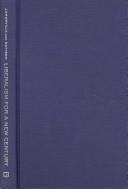| Listing 1 - 2 of 2 |
Sort by
|
Book
ISBN: 1526129566 Year: 2007 Publisher: New York : Baltimore, Md. : Manchester University Press, Project MUSE,
Abstract | Keywords | Export | Availability | Bookmark
 Loading...
Loading...Choose an application
- Reference Manager
- EndNote
- RefWorks (Direct export to RefWorks)
The Ulster Volunteer Force (UVF) was established in January 1913, as a militant expression of Ulster Unionist opposition to the Third Home Rule Bill. Academic historians have tended to overlook Ulster Loyalism. This book provides the first comprehensive study of the UVF in this period, considering in detail the composition of the officer corps, the marked regional recruiting differences, the ideologies involved, the arming and equipping of the UVF and the contingency plans made by UVF Headquarters in the event of Home Rule being imposed on Ulster. Using previously neglected sources, it demonstrates that the UVF was better armed and less well-trained, with the involvement of fewer British army officers than previous historians have allowed, and suggests that the UVF was quite capable of seizing control of Ulster and installing the Ulster Provisional Government in the event of Home Rule being implemented in 1914.This book will be essential reading for military and Irish historians and their students, and will interest any general reader interested in modern paramilitary forces.
Ulster Volunteer Force (1913-1920) --- Ireland --- Politics and government --- History --- Andrew Bonar Law. --- British public opinion. --- Irish revolutionary period. --- Liberal government. --- Nationalist Ireland. --- Orange Order. --- Sir Edward Carson. --- Third Home Rule crisis. --- UVF equipment. --- Ulster Special Constabulary. --- Ulster Unionist militancy. --- Ulster Volunteer Force. --- Unionist Clubs. --- Unionist propaganda. --- armed Unionism. --- military efficiency units. --- neo-feudalism. --- political ideology. --- standard military hierarchy.

ISBN: 9786612360190 1282360191 0520940563 9780520940567 9780520249196 0520249194 9780520250710 0520250710 9781282360198 6612360194 Year: 2007 Publisher: Berkeley,
Abstract | Keywords | Export | Availability | Bookmark
 Loading...
Loading...Choose an application
- Reference Manager
- EndNote
- RefWorks (Direct export to RefWorks)
American liberalism today is in a state of confusion and disarray, with the "L word" widely considered a term of derision. By examining both the historical past and the fractious present, Liberalism for a New Century restores a proud political tradition and carves out a formidable defense of its philosophical tenets. This manifesto for a New Liberalism issues an urgent and cogent call for the most important rethinking of its values since the late 1960's, when conservatives reenergized themselves after Barry Goldwater's infamous loss. The essays in this volume, most of them never before published, are written by a leading group of historians, journalists, and public intellectuals. Some of the nation's most highly respected liberal minds explore such topics as the classical liberal tradition, postmodernism's challenge to the American "Enlightenment," the civil rights era, the influence of twentieth-century radicals on American liberalism, the 1950's, tolerance, the cold war, and whether liberalism should have a large and aggressive vision. One essay considers liberalism in Iran and what American liberals might learn from this movement. Fast-paced and encompassing such hot-button issues as the family and religion, here are ringside-seat arguments between people who don't often get to engage with one another: right-leaning liberals like Peter Berkowitz and John Patrick Diggins, and leftier liberals like Michael Tomasky and Mona Harrington. The result is a lively and stimulating collection that articulates a clear-minded alternative to the conservative ascendancy in American history and offers a timely and essential contribution to the growing national debate.
Liberalism --- Liberal egalitarianism --- Liberty --- Political science --- Social sciences --- United States --- Politics and government --- 20th century american radicals. --- america political philosophy. --- american enlightenment. --- american history. --- american liberalism. --- american politics. --- civic. --- civil rights era. --- classical liberalism. --- cold war. --- democracy. --- diplomacy. --- family and religion. --- john patrick diggins. --- liberal. --- liberalism and american values. --- liberalism in iran. --- liberalism. --- michael tomasky. --- mona harrington. --- national debate. --- new liberalism. --- peter berkowitz. --- political ideology. --- postmodernism. --- postmodernity. --- tolerance.
| Listing 1 - 2 of 2 |
Sort by
|

 Search
Search Feedback
Feedback About UniCat
About UniCat  Help
Help News
News